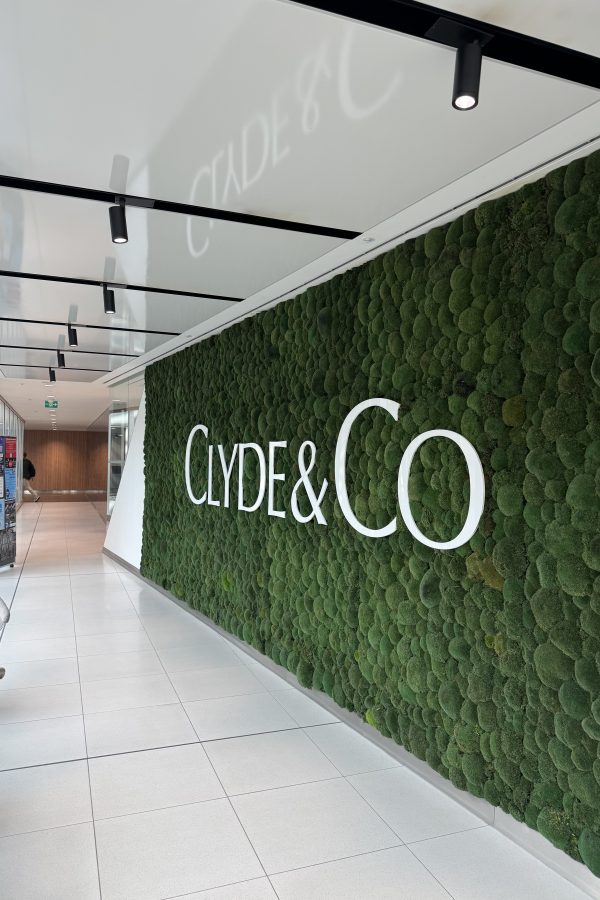While not at the front line of the coronavirus effort, law firms have been affected by the same economic ups and downs as many other employers. How has a sector with a very traditional approach to pay and promotion adapted?
They may not have been hit by the economic fall-out of the pandemic to the same degree as other industries such as airlines and hospitality, but it’s been a period of tough decisions for partners at many law firms.
Cost-cutting measures were made across a number of firms, with some choosing to offer employees shorter weeks, others imposing pay cuts and strategies such as delaying or capping bonus payments being deployed.
Clifford Chance – similar to competitors – froze salaries and deferred partner distributions, with the statement: “We are a strong and resilient organisation, with over five years of robust global growth behind us. Our teams are always a source of huge pride, they are fantastically talented, motivated and collaborative, and never more so since the virus has begun to spread. Over the coming months our aim is to keep these teams together and to work shoulder to shoulder with our clients who need our support now more than ever.”
Many such measures have been temporary or are planned to be: Osborne Clarke, for example, has pledged to reimburse reduced salaries if the firm hits its end-of-year targets. Together with Norton Rose Fulbright and Herbert Smith Freehills, it also handed back government furlough money having experienced better than expected business.
Coming to agreement
“Many firms looked at their order books in April or May and thought ‘we have a problem’, the future was uncertain and salaries are our biggest cost,” explains Jonathan Bond, global director of HR and learning at Pinsent Masons. “We launched a plan called ‘Together’ where there would be a 20% pay cut affecting pay above £20,000 for a period of three months. Over ninety-eight percent of staff signed up to it voluntarily. It ran its course in July and our long-term order book is looking reasonably robust, so we’ll keep with our plans in terms of promotion to partnership.”
The firm has also offered reduced hours working where people can work for three fewer days a week and receive a reduced salary, again over a temporary period. “We’ve always offered flexible and agile working but what this has done is offer a more user-friendly way to access it, which has reduced the stigma that part-time working sometimes has in professional services. And they know they’re doing the firm a favour at the same time by reducing the salary bill, which has tipped the scales slightly.”
Chris Oglethorpe, HR director at Gowling WLG, says his firm took a similarly cautious approach. “We’ve had to do a series of things as most firms have. We implemented a package of flexible employment measures that each team could take and deploy to reflect their marketplace, while we offered other options such as sabbaticals and extended unpaid leave.
“Certain jobs where they had almost no work to do overnight – such as mail services and client reception, were placed on furlough,” he explains. “We said we’d safeguard jobs and protect the firm in the long term, knowing that business would dip during the pandemic.”
Most employees signed up to a voluntary amendment to their contract to do 80% of hours for 80% of pay for a period of six months, which will finish on 31 October. Some teams have been busier so this has increased to 90%, says Oglethorpe, and furlough numbers have progressively been reduced as markets have recovered and the offices have reopened. Salary reviews, which were due to take place at the start of July, have been postponed until January, while bonuses for the financial year to April 30 were deferred until November this year.
Longer-term impact
While law firms were not significant users of the furlough scheme, tending to use it for front-office staff who were less able to work from home during lockdown, they have still had one eye on the winding down of government support at the end of this month and the impact this might have on the wider economy. “Some have been dealing with a reduction in fees and income, but others not. The fact is that all organisations are preparing for a downturn rather than being in a downturn,” says Ken Charman, CEO of uFlexReward, a reward platform that spun out of Unilever. He argues that the crisis has offered more traditional employers the opportunity to “fundamentally change” the employer-employee relationship.
“Before, the professional services sector lagged behind the rest of the economy in the way it confers status and rewards people – it’s out of date,” he says. “Organisations will become more skills-focused, less hierarchical and pay will become more based on the market rate for your skills at that time rather than how far you’ve climbed up a ladder. Covid-19 is a tipping point.”
Feeling ‘less owned’
So while a number of firms have made tactical changes to mitigate the impact of the pandemic in the short term, there could be longer-lasting shifts on the horizon. “Making 20% of people redundant cuts people costs immediately, but when things get better you need to re-recruit,” adds Charman. “It makes sense to keep people on the books and people are very cautious, so if you offer creative ways for the company to save money – for example a sabbatical or three months off over the summer – they’ll be supported.”
Firms that offer agile contracts, where employees feel “less owned” by an employer or where they have space in their lives to explore other facets of their personalities (or just create more balance) will attract the best talent, he believes.
Lucy Munro, UK HR director at Hogan Lovells, agrees that the employee offering “absolutely has to change”, and this applies not just to financial benefits but the whole package available to the workforce.
“Ours was based on the majority of our people working on-site in London, accessing our gym, canteen and the like. Now we run weekly virtual yoga, HIIT and mobility classes, employees can share fitness goals on [fitness tracking app] Strava,” she says. “But we realise we need to do further work on this, for example should we offer a virtual GP service, what do we offer people who now work mostly from home?”
Along with many firms, a central consideration has been how to support employee wellbeing, and Hogan Lovells’ employee assistance programme has proven more important than ever during the past six months. “Care for mental health is at the centre of what we do, reminding people to reach out and have this conversation,” she adds. Part of this approach is to come up with creative ways to connect, such as virtual thank-you cards or encouraging socially distant meet-ups where colleagues live in reasonable proximity.
Adapting perks
But despite this support, progression and development is still a concern, particularly for those in the junior stages of their legal career. Munro adds: “It is harder at home – how do we ensure people in the junior ranks get the experience they need, such as sitting in on client calls or the networking. Asking silly questions you might in the office seems harder psychologically over Zoom or the phone, so there’s a lot that’s lost.”
Firms’ approach to pay and benefits during and after the pandemic may well be shaped by where they sit in the market, argues Andrew Mobberley, head of sales at reward consultancy Broadstone, which works with a number of professional services clients.
“In magic circle firms it’s mainly a case of let’s see what 2021 looks like versus any material change right now,” he says. “But if you’re a regional firm, the view might be different. The partner mentality is still there though – the sense that ‘it’s my money and this could affect my equity drawing’.”
Mobberley believes that one positive outcome of Covid-19 will be greater levels of digitisation around benefits, which in turn means employees will be more aware of what’s on offer and more engaged.
“Pensions communications for example have been poorly digitised,” he explains. “We will see a general improvement in that, and firms will be thinking about how we make ease of access to reward platforms better and more worthwhile.” Many are already making small changes such as adapting gym memberships to enable employees to attend the venue closest to home rather than the office or to include family members on EAPs and medical advice lines.
Overlooking overheads
There’s also the ongoing question of how employers support the home office, and whether this is tied up in the overall package of reward. Charman from uFlexReward explains that many employers have or are beginning to offer ‘home budgets’ so workers can equip home offices with better tools such as second monitors or more ergonomic chairs – “it’s not formally part of reward but something people regard as a perk”, he says.
Brian Kropp, chief of research in the HR practice of analyst group Gartner, says that typically companies pay 20% above and beyond an employee’s salary “in order for that employee to have a workspace in one of their locations”.
These overheads include rent, electricity, cleaning, and other expenses, Kropp explains. “By having employees working remotely, there is a significant cost-saving that they can achieve by eliminating the cost of their office spaces. For the companies that have decided to have employees work remote full time, some of those cost-savings are dropping to the bottom line, but they are also using some of those cost-savings to support their employees’ ability to be productive by working from home.”
The most common ways organisations have done this is either by allowing employees to transfer office equipment or to buy new equipment, but many are also offering support with internet or phone bills or offering stipends where it’s up to the employee to use the budget in the way they see best.
Oglethorpe points out, however, that while the world of work will change permanently, HR and reward strategies will be based around more flexible working patterns and locations rather than a future without the office. “We’ve shown we can fit in home-schooling; we have the statistics to show that work patterns can be different and what’s possible. Now our work is starting to look to the future and how things evolve over time. It’s an opportunity to make some changes we may have held back on prior to the pandemic.”









